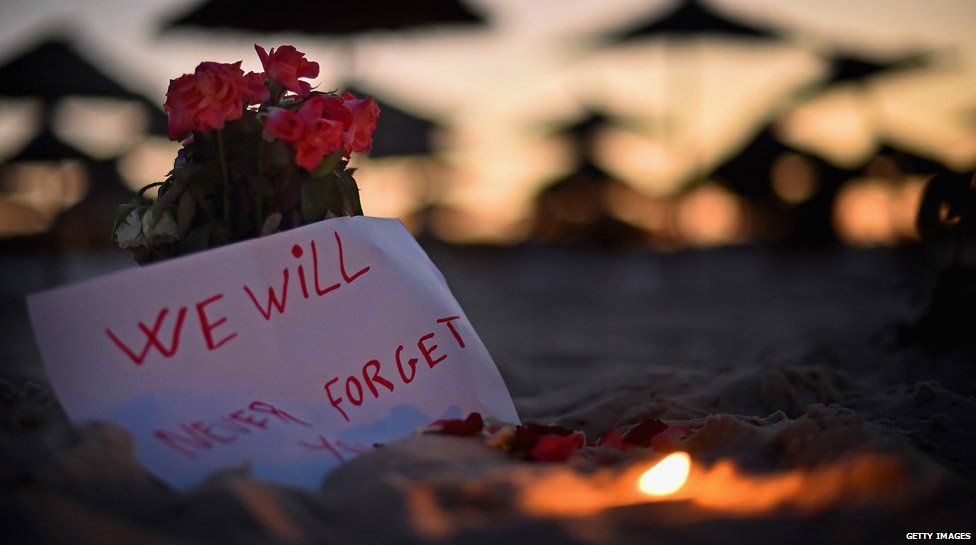Weekend Edition: The week's best reads
- Published

A collection of some of the best features from the BBC News website this week, with an injection of your comments.
"Incredibly sad to read," posted Rachel Payne. Ellie Makin, a tennis coach from North Yorkshire described it as "just like any other morning" on the beach at the Tunisian resort of Sousse last month. She was one of many holidaymakers spoken to by BBC Panorama's Jane Corbin about an attack by a gunman who shot dozens of tourists. Some 38 people died that day - this is the survivors' story.
The rower and the pussycat
"Quite an extraordinary story," tweeted David Frank. Ove Joensen grew up in a remote part of the Faroe Islands and became obsessed with the idea of rowing 900 miles across the North Sea to Denmark. When he finally set off he took his cat for company. His exploits earned him a place in his country's history books.
Deadly trail
"This incredible piece about Litvinenko is worth 15 minutes of your time," tweeted John McGarvey. Alexander Litvinenko drank contaminated tea at his meeting at the Millennium Hotel in November 2006. He was being killed from the inside. His death sparked a murder investigation which, at its height, had more than 100 detectives working on the case. By speaking to key witnesses and confidential sources close to the case, BBC Newsnight's Richard Watson has been finding out about the 44-year-old's mysterious demise.
America's Eagle
"Now, at age 74, I read your story and tears came to my eyes," emailed Carl Burkhart, who trained aboard the Eagle in the late 1950s. It is now the flagship of the US Coast Guard, and the only tall ship in active service in the US military. It was built by the Nazis and used by Hitler's forces in World War Two. It transpires that when the Allied commanders sat round the table in 1946 to divide up the spoils from the German fleet they draw names from a hat. After a crafty under-the-table swap with the Russian commodore, the Horst Wessel was destined for the US.
Nitrous craze
People have been getting high on laughing gas for more than 200 years. But the government now plans to ban it because of its health risks. The move has sparked protests from users who say the move is unfair and the gas is not dangerous. We take a look at the facts.
Enjoyable reads from elsewhere
The most powerful man in Britain - Politico
Will Intellectual Combat Ever Top Buckley-Vidal? - New York Magazine
Meet the Man Who Flies Around the World for Free - Rolling Stone
Subscribe to the BBC News Magazine's email newsletter to get articles sent to your inbox.